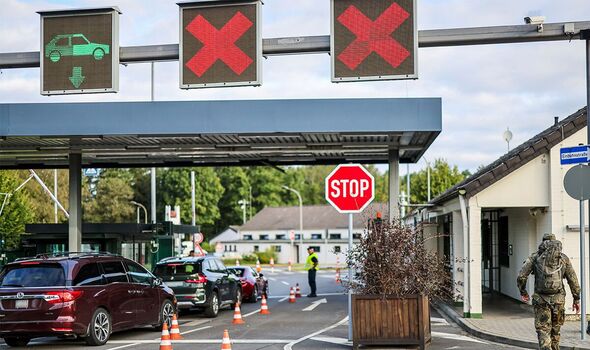NATO imposed the second-highest security level on one of its bases in Germany after intelligence services warned of a potential drone attack.
The NATO air base in Geilenkirchen, near the western German city of Aachen, was put under the alliance’s second-higher security level for nearly a day last week.
Germany’s press agency DPA is now reporting the move was the result of intelligence warning of “preparatory actions for a probable Russian act of sabotage against the NATO base by using a drone.”
The North Rhine-Westphalia base remained on high alert for almost 24 hours because of the potential threat, with precautions scaling back to the previous level on August 23.
All non-essential personnel had been asked to return home but air traffic continued as normal.
Under NATO regulation, the second-highest security level, known as Charlie, indicates that either an incident has occurred or that there is evidence some form of terrorist attack is likely.
Geilenkirchen is home to a special alliance aircraft, the Airborne Warning and Control System, that is currently used to monitor the airspace along the eastern borders of the Atlantic alliance.
The equipment is capable of spotting and identifying aircraft up to 400km away.
The system has also been employed to provide Ukraine with vital information as its defence forces continue to fight Russia.
AWACS (Airborne Warning and Control System) planes flying in international airspace over the Black Sea have been able to monitor Russian military positions and movements, offering Kyiv crucial intelligence since the start of the war.
Western agencies, however, have warned these activities may prompt Moscow to seek to inflict damage on NATO equipment in reprisal for the support shown to Ukraine.
Local media reported US military bases in Germany were already on high alert amid concerns of a possible attack in July.
Earlier this month, a major German air force base near Cologne was locked down for several hours amid fears that its water supply might have been tampered with. An investigation found no evidence of such sabotage.
There were also reports of suspicious observations at Geilenkirchen, and a person was briefly detained for questioning near the base but there turned out to be nothing untoward.
